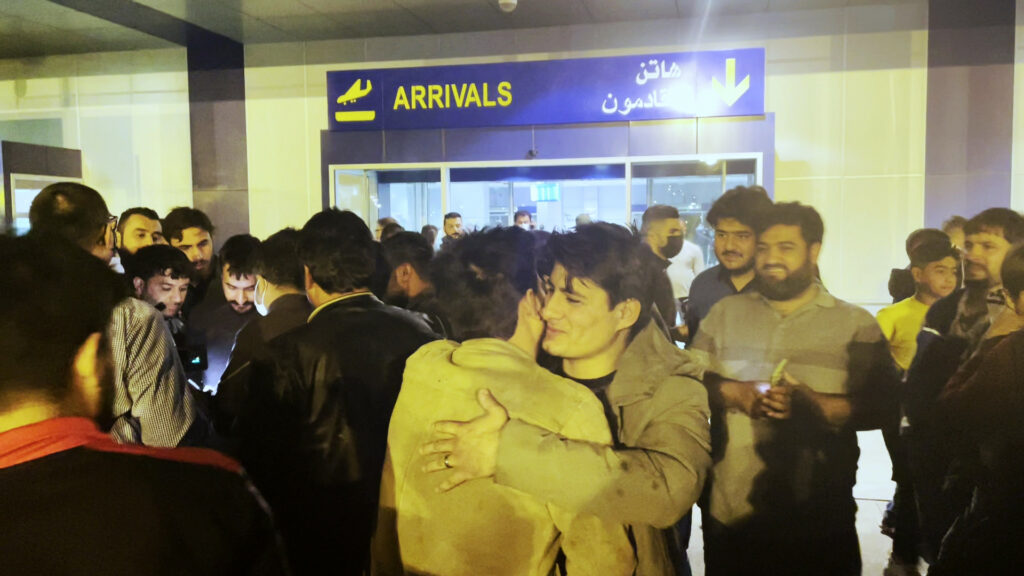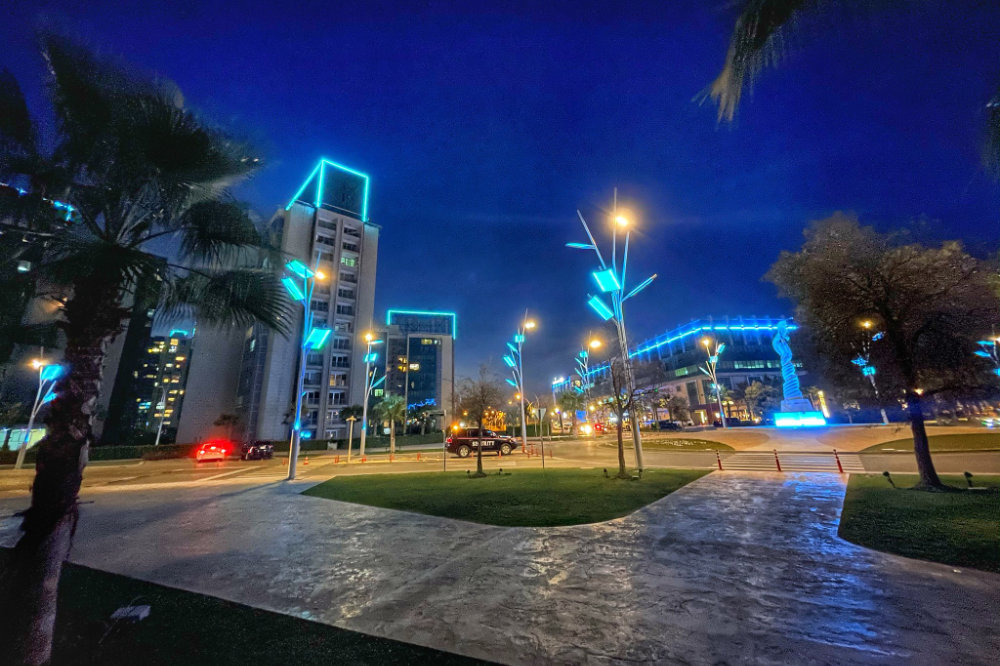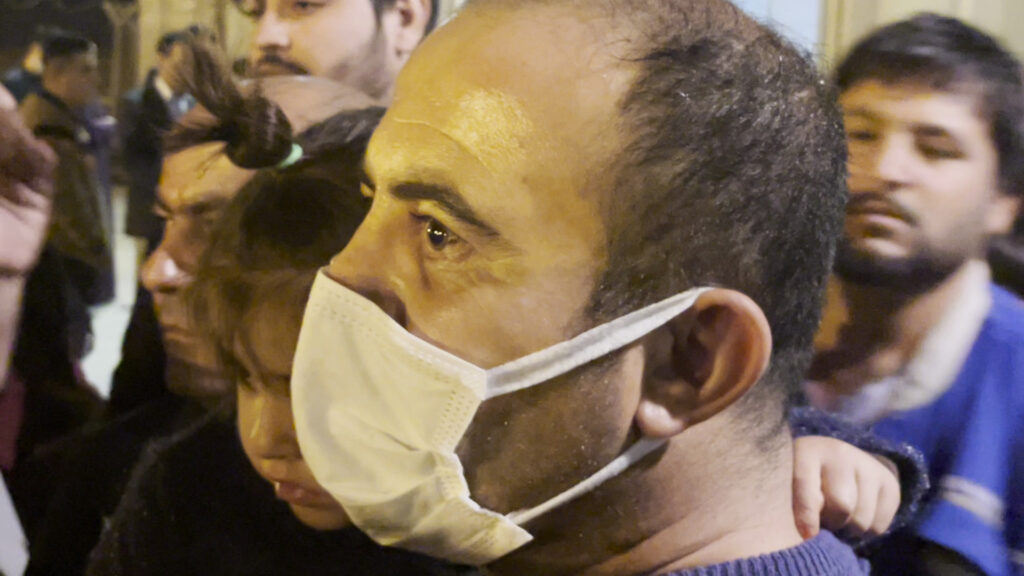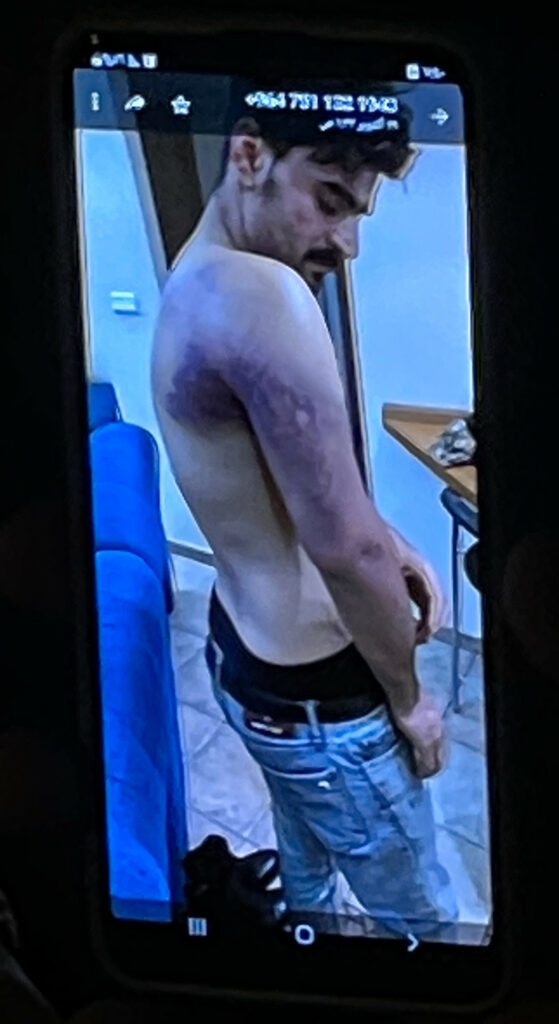Return of the Kurds from Belarus
“These are the airport taxis, they are too expensive. We'll go to the normal taxis," says the man with his child in his arms to his wife. They are standing at the airport in Erbil, the capital of the Kurdistan Autonomous Region in northern Iraq. He has just returned from Belarus on the special flight; his family was waiting for him in Kurdistan. The airport taxis have WiFi, English-speaking drivers and accept credit cards. The normal Kurdish taxis wait a kilometer further in front of the airport area.
A police officer who saw the whole thing goes to his patrol car and takes them to the cheaper taxis. "It's already dark and he has children with him, you can't just let them go," he tells me afterwards. Paying attention to each other, caring for others, solving other people's problems without being asked - all of this is part of the Kurdish culture. So why should you flee from here?

“Kurdistan” is a term that has multiple uses. In general, it describes the Kurdish settlement area, which extends across Turkey, Syria, Iraq and Iran. There are large Kurdish socialist groups in Syria and Turkey, an oppressed minority in western Iran and a capitalist-democratic autonomous region in Kurdistan-Iraq that has its own parliament, visas and security forces. There are also tensions between these parts, especially between the PKK in the Kurdish region of Türkiye and the adjacent Kurdistan Autonomous Region.
Kurdistan (Syria)
It is understandable that people are fleeing Syria. The country is ruled by an inhumane dictator and is characterized by several wars at the same time. In the north-east there is the “Autonomous Administration of North and East Syria” – also known as “Rojava”. This is constantly under attack from Turkey, there is no industry of its own, no real service sector and no tourism. The area, which is administered by a socialist party, enjoys a certain freedom of movement as long as the Americans exploit their oil fields here. Neither the political situation nor the power grid are particularly stable here. In the meantime she is practicing Türkiye also exerts pressureby restricting the flow of water.
When the Islamic State (IS) attacked this area in 2013, around a million people fled to the safety of the Kurdistan Autonomous Region in neighboring Iraq. Many still live there today. They don't see any prospects in their old homeland for the foreseeable future. In Kurdistan Iraq, many live in refugee camps or work in the low-wage sector. Often more of a survival than a life. Especially in a culture in which one's own family is the social safety net and there are no government payments. If you live away from your own family, you will quickly find yourself on the sidelines financially.
Kurdistan (Iraq)
But many of the people who are currently stuck at the Belarus-Polish border come from Kurdistan-Iraq. There are several 4G mobile networks there, there is fiber optic internet at home, a stable electricity and water supply, amusement parks, shopping malls but also fantastic landscapes and Erbil, the oldest continuously inhabited city in the world. There hasn't been a war here since the Saddam era in the 1990s. The Islamic State came to the border, but never further. Even in 2014, the theme parks just an hour from the front were open. There were families there who felt absolutely safe.
The withdrawal of Iraqi soldiers created a power vacuum in the Iraqi-controlled areas, which IS took advantage of and tried to wipe out the Yazidi religious minority. The 74th Genocide against the Yazidis from August 03, 2014 is the darkest chapter in recent history. Tens of thousands were murdered or kidnapped. Around 100.000 refugees still live in the camps around the Kurdish city of Duhok. They are only slowly returning to their homeland of Shingal because various political and military groups have territorial claims there. They don't want to live in the camps forever; other countries rarely accept them.
The Kurds in Kurdistan Iraq enjoy a good life compared to all their neighbors. No group is persecuted here, there is a free economy, many media companies and television stations as well as a parliament in which several parties are represented and a coalition of two popular parties governs. What motivates young people to leave here for Belarus? I spoke to some when they returned.
Thursday evening, 18.52:747 p.m.: The Iraqi Airways Boeing XNUMX flies into Erbil Airport from the south, finally passing the office and residential towers of the “Empire” residential complex. A rare sight. Much smaller aircraft usually land here.

An unusually large number of people gather in front of the airport exit. Police, military and intelligence services are also present. This is not particularly rare in Kurdistan Iraq, but to see them so concentrated here is unusual. I speak briefly to the security forces to see if they know when the people will get out of Belarus. You ask your colleagues in the terminal and say “about five more minutes. But please remember: This is very emotional for the families. While it's important that you report on it, not everyone wants to be filmed. So please pay attention.” Data protection is less complicated in Kurdistan than in Germany, but it is still an understandable point for me.
The returnees

A woman comes directly to me and speaks to me and asks if I am a journalist. She introduces herself as Yezda and is 45 years old. She says her son set out a few weeks ago - against family advice. “It was clear that something was wrong. If Germany wanted him, he could have flown there by plane. But he didn't want to listen. He took all his money and borrowed some more. He said he would bring us all and then we would live in Germany. But what am I supposed to do? I don't speak the language at all. And I’m happy here.”
Soon afterwards, her son Aras (19) comes out of the airport with other friends. His mother and he have tears in their eyes, hug each other and are happy. He explains to me that the matter also seemed dubious to him. However, he has no perspective here. There is a lack of work in his rural area. He attended school until the ninth grade, no training and no studies. It was explained to him that he would easily find work in Germany. “You earn €5.000 a month there. I can feed the family well with this!” he explains to me.
We talk a bit and I try to explain to him that we also have unemployed people and that €5.000 a month is rather rare. Especially if you have no training or study. But even with good basics it's hard enough. He could also study in Kurdistan, learn something, work his way up in a company. He explains to me that it is very complicated and that if in doubt he would have to move away from his area - but he doesn't want to do that. However, moving to Germany would have been worth it because it was easier there. I won't be able to discuss this with him conclusively any time soon.
I ask him how the trip went. “There were these… travel entrepreneurs from Belarus. They told us that they could take us to Germany. If you arrive by bus, you can live and work there. I had to pay $9.000 for this. First to Istanbul, then to Minsk, then on by bus. He couldn't explain why this was only possible by bus. But that's just the way it is. Merkel decided that. But it was terrible there. We lived in this jungle for two weeks. First we should go to Lithuania. They took us to the border and told us to just walk over. But they didn't want us there. I was in Lithuania with my feet. But they beat us back. And behind us were the people from Belarus who also beat us up and said we had to leave. Over and over again. I thought I was going to die.” – “And in Poland?” I ask.
“The soldiers wanted to let us die”
“It was exactly like that. The Poles didn't want us at all. At first we thought they didn't know that we were the tour group to Germany. But they knew it. But they didn't want us there! Then I understood that we were just being shown off. Like puppets on a string. I really couldn't believe it before. But the soldiers from Belarus beat us again and again. They said if we don’t go over, we’ll die in the jungle!”.

A man comes over and shows his injuries on his cell phone. He says the Belarusian soldiers treated him like this: “Two days ago they asked who wanted to go back. Of course I wanted to go back! They took our money and ran away! How could I be so stupid? I never want to go to Europe again! How can you treat people like that? Why are you doing this to us? Look: I still can't walk properly." He is beside himself and is comforted and reassured by other men.
He also says that he didn't run away from anything directly; he was simply attracted by the prospect of a better life. Political stability, a social system, well-paid jobs like he saw on TV. The Iraqi central government is harassing the Kurdish regional government wherever it can. Iranian-controlled militias control parts of Iraq and Iranian-controlled politicians sit in all Iraqi ministries in Baghdad.
At the time when the wall fell in Germany, the Iraqi government was still gassing Kurds and burying them alive. It is understandable that people want to come to the EU, where there has not been a war for 75 years. Nevertheless, some Germans also strive for a better life abroad. As you can see from the reality TV formats, they are no better prepared for their new life than the Kurds I'm talking to here.
But these people who traveled to Belarus did not expect to become the pawns of another dictator. They were mistreated by state security forces and robbed of their money by their henchmen. Now they are back with their families. Some are ashamed of their naivety, others are angry with Europe, and others see their financial ruin above all. “I sold my house so we could both go there,” says a crying man holding his wife in his arms.
The exit area of the airport gradually becomes clearer. Some were picked up by their families, others shared a taxi to a distant city as there was no real local transport. Only a few remained who don't know where to go or how to get home. Two soldiers speak to people in the parking lot: “Are any of you going to Slemani? Can you take the boy with you? He doesn’t know how to get home.”
By 22:00 p.m. all interviews have been given, all people have been cared for in some way and are on their way home.
The Belarusian dictator Lukashenko has achieved his goal: all over the world you can see on television how the EU “defends” itself against unarmed refugees with water cannons and gas. The West is on the phone again with the Belarusian government, and Lukashenko's henchmen were able to earn millions. The right-wing in Germany can be happy that the “battle” against the refugees has been won and make fun of how naive they are in their search for a better life.
Hardly anyone thinks about the people themselves. As I say goodbye to the security guards at the airport, they tell me: “Thank you for being here. But when you see your government, tell them that you can't deal with people like that. You just don’t do that.”


Ein Kommentar